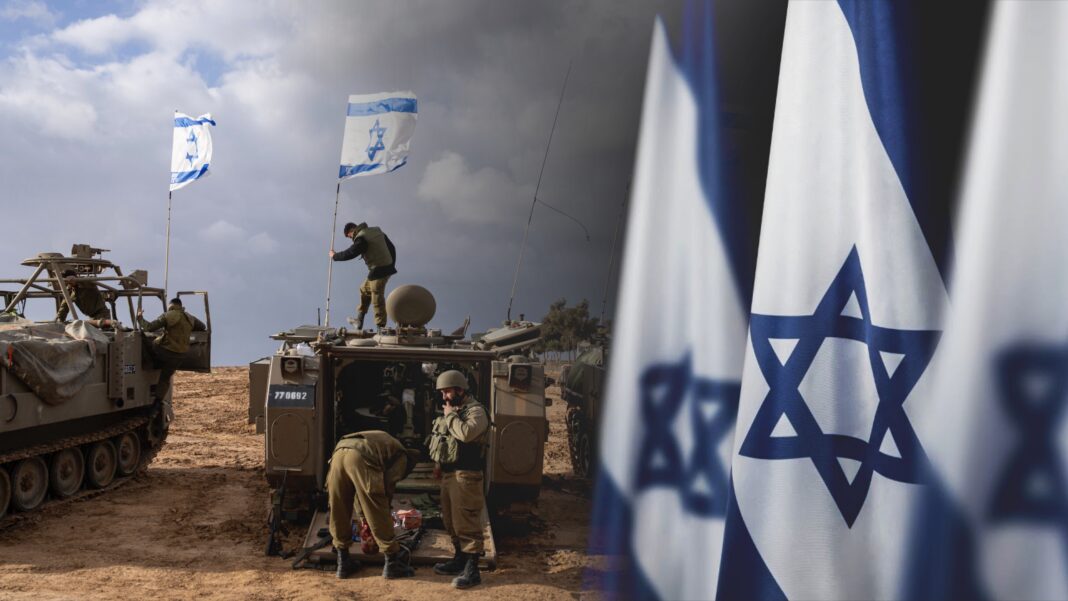This week, Israel’s cabinet approved a peace deal brokered by Qatar, Egypt, and the United States. The agreement is for the release of hostages that were seized by Hamas on October 7 in exchange for a pause in the fighting in Gaza.
What does this truce between Israel and Hamas mean for the current war in Israel and for the future?
The agreement will result in the release of about 50 Israeli hostages, consisting of women and children, in exchange for a four-day truce in Israel’s air and ground campaign. There’s a potential for an extension, with ten hostages released each extra day.
Now, think about that for a moment. That’s going to put Israel’s leaders to the test. After four days for 50 hostages, they are then going to have to decide whether they want to give another day. Each day that goes by is going to allow Hamas time to reform, regroup, and resupply. You’re going to have an outcry in Israel.
As you can imagine, if that was one of your family members held captive, you’re going to be saying, “Well, it’s just one more day, and ten more of these hostages can be released.” This will prolong the conflict, no doubt. However long this truce ends up lasting, it’s going to allow Hamas a lot of time to make further preparations.
We need to be praying for Israel’s leaders during this time. It’s going to take the wisdom of Solomon for them to make decisions about how long to extend the truce to get more of these hostages back.
Although not a part of the official agreement, it’s understood that about 150 Palestinians will be released as part of the deal. Supposedly, none of those released will be terrorists.
![]()
In Your Inbox
What we see here is another in a seemingly endless line of truces, treaties, and ceasefires that Israel has entered into since 1948.
Israel’s Past Wars And Peace Agreements
It may be better understood by looking at Israel’s past wars and peace agreements.
Israel’s first modern war was in 1948 when the modern state of Israel was founded. They were attacked by five nations simultaneously. At the end of this war in 1949, armistice agreements were entered into with Egypt, Lebanon, Syria, and Jordan. But really, there was no end to Israel’s war with these nations.
The Suez War in 1956 ended under pressure from the United States and the Soviet Union. While there was no peace treaty, the United Nations created a kind of buffer zone and placed its forces in the area.
The Six-Day War in 1967 ended with a ceasefire agreement and UN resolution 242, which the parties agreed to.
Fifty years and a day before the recent October 7th Hamas invasion, you had the Yom Kippur War in October 1973. A series of ceasefires and peace negotiations, including the Camp David Accords, ultimately led to the end in 1979 of what had been a 30-year conflict between Egypt and Israel.
The first Lebanon War in 1982 dragged on for almost two decades.
The First “Intifada,” an Arabic word that means uprising, went from 1987 to 1993 and ended with the Oslo Accords. Yasser Arafat and Yitzhak Rabin shook hands at the White House, with President Clinton in the background, and set up a framework for the governance of the West Bank and Gaza. In 1995, they entered into the Oslo Two Accords.
In 2000, we saw the Second Intifada, the second uprising, with a ceasefire reached in 2003. The Second Lebanon War in 2006 also ended with a ceasefire resolution.
There was a series of what’s called the Gaza wars. Israel has been involved in several conflicts with Hamas, the terrorist group that governs the Gaza Strip. There was Operation Cast Lead (2008-2009), Operation Pillar of Defense (2012), and Operation Protective Edge (2014). There was also an 11-day conflict with Hamas in 2011, which ended when Egypt negotiated a ceasefire, along with the US and Qatar, just like what has happened recently.
On October 7th, when Hamas invaded the southern part of Israel, it began Israel’s Operation Swords of Iron, which is still ongoing today. A four-day temporary ceasefire has now been signed.
Depending on how you divide up these different conflicts, Israel, in its 75-year modern history, has had 16 different wars or conflicts. Think about that. That’s about one every five years.
Israel’s modern history is just one long series of conflicts followed by ceasefires, treaties, and truces, though they are often short-lived.
The Elusive Phantom Of Peace In Israel
There has never been such an outcry for peace in the Middle East as we see today. We now have 24/7 television coverage, social media, and global outcry. There are major protests and demonstrations, with millions gathering in Europe, the Middle East, Asia, and the United States. We have global leaders all over the globe calling and pleading for a ceasefire. Today, unlike any time in history, the world is ripe for a comprehensive solution to this Middle East peace crisis.
As I went through these conflicts in Israel, I noticed that they are always mediated, negotiated, or brokered by outside forces—this most recent ceasefire by the US, Qatar, and Egypt. That will also be the case in the end times when the Antichrist will rise from a revived Roman Empire.
This temporary peace is just another peace agreement and a long line of truces and treaties paving the way for the peace that the Antichrist will bring when he comes onto the world scene.
After the Rapture, you can imagine the chaos. The act that will catapult the Antichrist onto the global scene is a peace agreement that he will broker with Israel. It will even include the Temple Mount area.
He is going to be hailed by the world. You can see today that anyone who could solve this mess in the Middle East would be hailed as a world savior. The world stage is set for his arrival, especially with this condition in Israel and the global outrage we’ve seen. All that remains is for the Rapture to take place, and that can happen at any moment. We need to live in light of that day.














